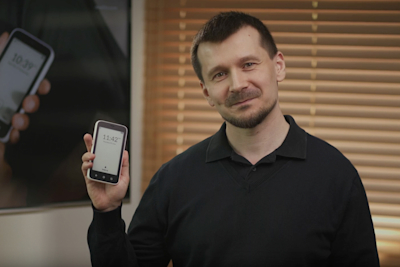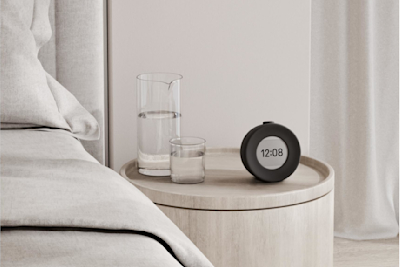
Nomophobia - fear of being without phone
We live in a time where most of us can’t live without our mobile phones. We use them everywhere, at work, in restaurants, during walks, at the gym and even on the toilet! Many of us feel a strong need to keep up to speed with what’s going on at all times and will always find an excuse for having our mobile phone with us. Such behaviour doesn’t necessarily indicate that someone is obsessed, of course. After all, mobile phones make our lives a lot easier.
The problem starts, however, when we panic without a mobile phone and feel as though everything we do revolves around it. Let’s call a spade a spade: it’s an addiction. It makes us feel restless and on edge. It negatively affects our lives, especially in the long run. ‘No mobile phobia’, more commonly referred to as ‘nomophobia’, is a relatively new form of anxiety disorder. As we might expect, the number of addicts is constantly increasing with a number of us showing similar tendencies.
How does nomophobia manifest itself?
Mobile phone addicts are obsessed with their phones and will have their phones on them all day. They tend to be online constantly and they begin to favour online relationships over offline ones.
Like most addictions, using their phone becomes more important their health or relationships, meeting friends and family or even focusing on work. It takes priority over their entire life.
The fear of a dead battery and not being able to charge it up, particularly when a person is not at home, is another typical symptom. An addict would feel frustrated, stressed or anxious without a power bank or plug socket. There’s a constant need to recharge the phone so that the battery doesn’t die on them.
Every action is determined in some way by the possession of a mobile phone (e.g. an addict would use it even during shopping or at the gym).
A nomophobic person is also likely to be afraid of someone hacking into their phone and checking the data, history or contacts and deleting important information.
Nomophobic people tend to sleep with their mobile phone next to them, compulsively checking notifications and experiencing phantom vibrations or sounds.
Read also: I went 24 hours without my phone and here’s what happened
What are the effects of nomophobia?
With nomophobia, the lack of a phone causes symptoms similar to classic neurosis: distress, increased blood pressure, palpitations, trembling hands, intensifying feelings of panic or shortness of breath. These are signs of stress, which if experienced cause a person check their phone as fast as possible when reunited with it after a period without it.
How to prevent nomophobia?
First, let’s answer some questions:
Does your mobile phone dominate your life?
Do you turn it off on holiday or at night?
Do you take your mobile phone to the bathroom or other unusual places?
How often do you look at your mobile phone?
These questions will help you to distance yourself and analyse the impact your mobile phone has on your daily life. There’s nothing wrong with making use of the endless possibilities our phones give us. However, if your mobile phone use is beginning to affect your relationships, physical or mental health, it might be time to take a break. Try to set yourself some ‘mobile phone free zones’ such as your bathroom and turn off your phone before going to bed. If you feel as though your mobile phone is taking over your life im such an extreme manner that you are unable to cope, you should consult a therapist. Remember that over time, a few bad habits can develop into other more serious disorders.
Don’t let technology control your life! Dare to be free. Is there anything you’d like to add, have we missed anything? If you’re interested in sharing your experiences with us or writing a guest post for us, send us an email via hello@mudita.com!
Please feel free to get in touch via social media (send us some photos or videos too), you can find us on Facebook, Twitter and Instagram, let’s connect! To learn more about Mudita, take a look at our website and our other posts.
If you enjoyed reading this article, please share and recommend it!
Related stories

What’s Next for Mudita Kompakt?
Explore upcoming Mudita Kompakt updates, including many bug fixes, navigation, easier sideloading, SMS improvements, and more in the July 2025 software release.

Why an E Ink Alarm Clock Is the Best Mother’s Day Gift
This Mother's Day, gift better sleep with an elegant E Ink alarm clock, like Mudita Harmony, featuring nature sounds for restful nights and gentle mornings.

The Wait Is Almost Over: Mudita Kompakt Ships Next Week!
Mudita Kompakt is ready to ship. Last call for pre-order pricing ends April 20. Experience this award-winning minimalist E Ink phone & discover digital balance.
If you'd like to receive the best stories from our blog, keep up to date with our progress and get notified about our product releases and special discounts.